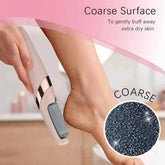WE DELIVER ALL ORDERS BETWEEN 3-5 DAYS SHOP NOW
FREE DELIVERY ON ALL ORDERS ABOVE 999 PKR
Trending Now
H HOMEWINS 100% Pure Memory Foam Travel Pillow – Soft Neck & Head Support Cushion for Airplane, Car, Home & Office (Black)
- Rs.999.00 PKR
Rs.1,499.00 PKR- Rs.999.00 PKR
- (-33%)
- Unit price
- / per
Save Rs.500.00
180kg Digital Body Weight Scale – Precision Electronic Weighing Machine with High Accuracy, Cell Operated Bathroom & Personal Health Scale
- Rs.2,999.00 PKR
Rs.3,999.00 PKR- Rs.2,999.00 PKR
- (-25%)
- Unit price
- / per
Save Rs.1,000.00
Adjustable Posture Back Belt, Posture Corrector Belt For Men And Women, Back Support And Shoulder Belt
- Rs.1,499.00 PKR
Rs.1,999.00 PKR- Rs.1,499.00 PKR
- (-25%)
- Unit price
- / per
Save Rs.500.00
EMS Foot Massager Mat Electric USB Charging Smart Display Tens Acupuncture Feet Cushion Blood Circulation Pad Health Care Home - Foot Massager
- Rs.999.00 PKR
Rs.1,499.00 PKR- Rs.999.00 PKR
- (-33%)
- Unit price
- / per
Save Rs.500.00
BEST SELLING
Heating Pad Women Period Pain Cramp Relief Belt | Portable Electric Menstrual Heating Pad With 3 Heat Levels & 4 Massage Modes For Belly And Waist Pain Relief
- Rs.1,999.00 PKR
Rs.2,499.00 PKR- Rs.1,999.00 PKR
- (-20%)
- Unit price
- / per
Save Rs.500.00
4 In 1 Massage Gun | Deep Tissue Percussion Massager With 4 Attachments | Handheld Electric Body Relaxation Therapy For Pain Relief & Recovery
- Rs.2,499.00 PKR
Rs.2,999.00 PKR- Rs.2,499.00 PKR
- (-17%)
- Unit price
- / per
Save Rs.500.00
Digital Blood Pressure Monitor – Fully Automatic Upper Arm BP Machine with Heart Rate Detection, Accurate Readings, Easy-to-Use Home Health Device
- Rs.3,499.00 PKR
Rs.3,999.00 PKR- Rs.3,499.00 PKR
- (-13%)
- Unit price
- / per
Save Rs.500.00
Lighting Jump Skipping Rope – LED Fitness Rope for Kids & Adults, Indoor/Outdoor Training
- Rs.999.00 PKR
Rs.1,499.00 PKR- Rs.999.00 PKR
- (-33%)
- Unit price
- / per
Save Rs.500.00
1 / of4
- Choosing a selection results in a full page refresh.
















